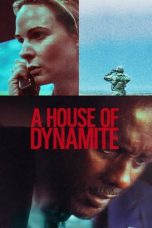RoboCop 3 (1993) Movie Review: A Less-Explored Chapter in the Cyberpunk Saga
RoboCop 3, directed by Fred Dekker and released in 1993, is the third installment in the RoboCop franchise. Following the success of the original RoboCop (1987) and its critically acclaimed sequel RoboCop 2 (1990), this film attempts to continue the story of the cybernetic law enforcer. However, it takes a more family-friendly and less intense approach, which has led to mixed reactions among fans and critics.
Plot Overview
Set in a future Detroit, RoboCop 3 continues the story of Alex Murphy, the former police officer turned cyborg enforcer known as RoboCop (Peter Weller). In this installment, the city is facing a new crisis: the ruthless corporation OCP (Omni Consumer Products) is forcibly evicting residents to make way for their new “Delta City” development.
When RoboCop discovers that OCP’s plans involve violent and illegal tactics, he finds himself in opposition to the corporation’s security forces. With the help of a group of resistance fighters, including a young hacker named Nikko (Remy Ryan) and a sympathetic OCP executive named Duffy (C. C. H. Pounder), RoboCop battles against the corporation’s corrupt practices. As the conflict escalates, RoboCop must confront new threats and confront his own humanity.
Performances
Peter Weller reprises his role as RoboCop, bringing the same gravitas and depth to the character. However, the film’s more sanitized tone reduces the impact of his performance compared to the earlier films. Weller’s portrayal remains a highlight, though the script gives him fewer opportunities to showcase the character’s complexity.
The supporting cast includes notable performances from Nancy Allen as Anne Lewis, who returns to help RoboCop, and C. C. H. Pounder as the well-meaning OCP executive. The young Remy Ryan, playing Nikko, adds an element of youthful enthusiasm to the story, though her character’s role is somewhat conventional.
Direction and Cinematography
Fred Dekker’s direction in RoboCop 3 marks a noticeable shift from the darker, more satirical tone of the previous films. The film’s approach is more straightforward and less biting, focusing more on action and adventure. The cinematography by Jacques Haitkin is functional but lacks the visual flair and intensity of the earlier entries.
The film’s special effects and action sequences are a mix of practical effects and early CGI. While they are serviceable, they do not reach the same level of sophistication or impact as those seen in the previous films. The set designs and costumes reflect a more sanitized and less gritty vision of Detroit.
Script and Execution
The screenplay for RoboCop 3, written by Frank Miller and Fred Dekker, attempts to blend social commentary with action but falls short of the satirical edge that defined the original films. The narrative is more straightforward and lacks the biting satire and dark humor that made the earlier entries stand out. The dialogue and plot developments can be formulaic, and the film’s tone shifts away from the more complex themes explored in RoboCop and RoboCop 2.
Themes and Symbolism
RoboCop 3 continues to explore themes of corporate greed, corruption, and the impact of technology on society. However, the film’s more family-friendly approach reduces the depth and impact of these themes. The struggle between RoboCop and OCP reflects broader concerns about unchecked corporate power and social justice, but these themes are presented in a less nuanced and more conventional manner.
Critical Reception
RoboCop 3 received mixed to negative reviews from critics and fans. While some appreciated its attempt to continue the franchise and deliver action-packed entertainment, many felt that it lacked the depth, satire, and innovation of its predecessors. The film’s more sanitized tone and less sophisticated special effects were often cited as points of criticism.
Streaming Services and Availability
For those interested in watching RoboCop 3, the film is available for streaming on several platforms. In the United States, it can be rented or purchased on Amazon Prime Video, Google Play Movies, YouTube, and iTunes. These options provide convenient access for fans of the franchise or those looking to explore this chapter in the RoboCop saga.
Conclusion
RoboCop 3 is a notable entry in the RoboCop franchise but stands apart from its predecessors due to its more sanitized tone and conventional approach. Peter Weller’s performance remains a highlight, but the film’s shift away from the darker, satirical elements that defined the original RoboCop and RoboCop 2 may disappoint fans seeking a continuation of that style.
While RoboCop 3 offers action and adventure, it lacks the innovative edge and critical commentary that made the earlier films memorable. For those interested in completing the RoboCop saga or seeking a nostalgic look back at the 1990s action genre, RoboCop 3 provides a watchable, if less impactful, experience.
















